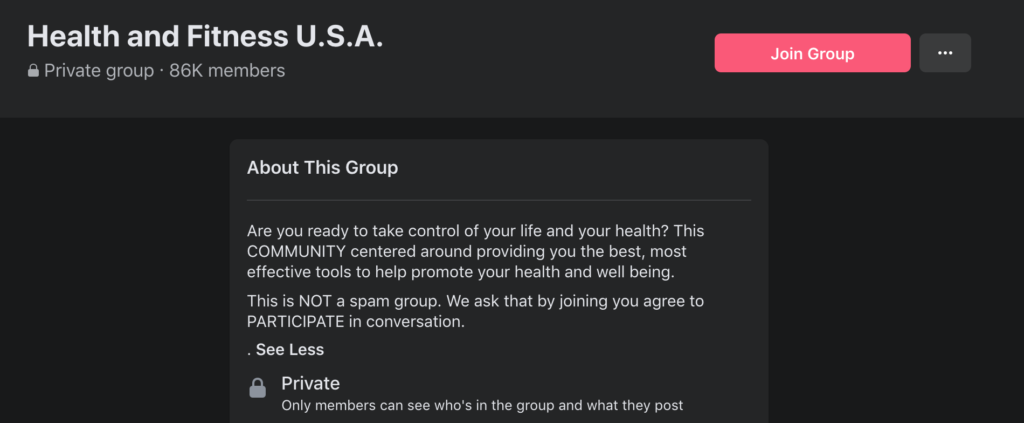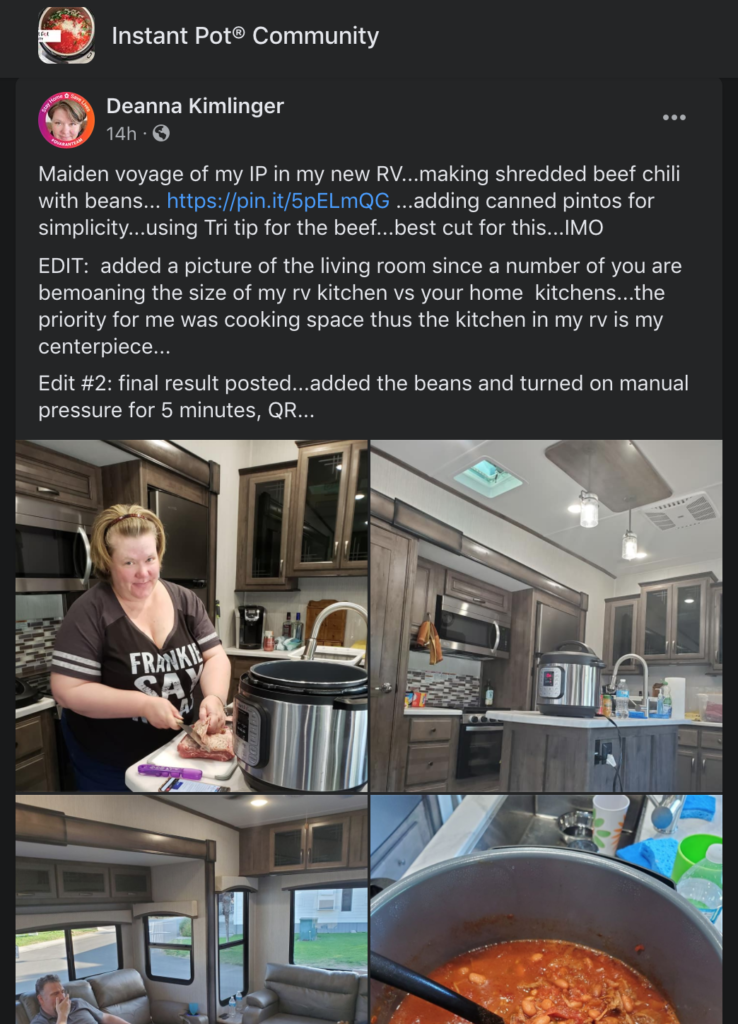Table of Contents
With so many social media sites on the rise, it may be hard to believe that Facebook is still the most commonly used platform with over 2.45 billion monthly active users. For marketers, it is vital to stay on top of trends and how users are using the ever-changing platform to drive the business’ Facebook marketing strategy. That includes understanding how to use Facebook Groups for business.
Businesses are expected to stay connected with their customers and many have used Facebook Groups to do so as they allow for a deeper, more personal connection than business Pages. Amidst the variety of functions that Facebook can provide for a company, Facebook Groups have proven effective time and time again in providing the loyalty that draws people into the platform in the first place.
Businesses who use Facebook Groups as part of their social media strategy are able to boost credibility and brand loyalty. To an invested and interested group member, a Facebook community is seen as the equivalent of a trusted friend group.
Groups > Pages
According to Jessica Campos with Social Media Examiner, Pages and Groups work in tandem. Campos references a well-understood analogy that Pages can be seen as a bustling town square while Groups are the digital equivalent of a living room. Groups are not intended to be used to sell to your audience, but instead, to connect with them, create awareness, and foster relationships with those who have common interests and beliefs.
Facebook Pages remain an important element of a business’s marketing plan but Facebook Groups can offer a more targeted way to connect with a specific audience. Groups have become a more prominent part of the Facebook experience and businesses of any size can reap the advantages of using Groups.
Key Advantages of Using Groups
1. Initiate Quality Conversation:
Groups allow for two-way, personal conversations with stakeholders. Providing customers the opportunity to provide input is key to gaining their loyalty. Happy customers can learn from each other.
2. Indicate Passionate Customers:
When customers join a Group, they tend to be more invested in the company and what it stands for. Based on engagement within the Group, companies are able to identify the passionate, loyal customers who could serve as brand ambassadors in future marketing efforts.
3. Promote User-Generated Content:
Both Group owners and Group members can share, posts, videos, and images on the group’s feed – which speaks again to the two-way conversation. Customers find joy in being able to share their own content, and in turn, companies often can use this content for more real and practical marketing tactics outside the Group.
4. Collect Feedback:
Groups allow for immediate customer insight and gather market research from a niche group. You can even create a poll within a group to receive honest feedback from followers, which can come in handy for brands who are interested in how marketing is best received by customers.
5. Encourages Community Building:
Most Groups are created with the intent of building a community around a specific topic. Not all Groups are product-based and typically, brands like to connect with a broader group of people who will buy into their value proposition, not just their products.
6. Flexibility to Play with Privacy Options:
Group admins can require interested members to answer screening questions and agree to group rules before admittance. This makes the member feel included and like they are being accepted into an exclusive group of like-minded people.
Types of FB Groups
One major benefit of Groups is that there are different privacy options, whereas Pages are open to the general public.
| Privacy Setting | Description |
|---|---|
| Public Group | Anyone can see posts and comments without joining. Anyone can become a member which allows them to post, comment and invite new members. |
| Closed Group | Only members can view and contribute in the group. Anyone can search for this group and join, but you must be accepted to view the contents. |
| Secret Group | This group is not searchable unless you are already a member or invited by another member. These groups don’t share info to the public or non-members. |
Why Pages often fall short
It is much harder to increase engagement organically on Facebook Pages than other platforms, therefore many businesses become frustrated and eliminate Facebook from their marketing strategy. However, while Facebook is still the frontrunner in terms of users, it can be a risk to not incorporate Facebook in some way.
Aside from lack of engagement, businesses can struggle using Pages for other reasons:
- Due to the potential to have a large audience following a particular Page, many businesses must run paid ads in order to segment the target audience and place the content right in front of them. This can create a budget problem if small businesses or startups do not have the advertising dollars to do so.
- Many customers can equate Facebook pages to an advertisement, becoming frustrated with a lack of personal connection.
- Competition can be overwhelming, especially for a small business or entrepreneur just getting in the game of social media.
What kinds of brands can do business using Facebook Groups
Facebook is constantly trying to make changes to Groups as they recognize the importance of this feature for companies and their ability to do business. All it takes to create a successful Facebook Group is an active social media following and a common topic or special interest – it could be any business, nonprofit, school, startup, or service group.
Facebook Groups are great for those companies who can connect with a certain audience for one of the following reasons:
- Shared Interests: Groups that focus on common interests for a wide range of people such as photography, sports, fitness, traveling, video games, beer and wine, etc.
- Special Interests: Niche groups that center around social or collective causes like caretakers, animal trainers, high school and college alumni, etc.
- Life Events: Groups that focus on common life experiences such as parenting, college, medical procedures, pregnancy, marriage, etc.
- Information: Groups to connect people who are seeking information, roommates, sales, support, etc.
With a wide variety of reasons that people would seek a Facebook Group to join, there are many ways in which businesses capitalize on bridging connections.
Best Practices from Businesses
Several businesses out there have taken advantage of Facebook Groups and been able to nurture these connections through the interests of their customers.
1. The Instant Pot
The Instant Pot has been a hot commodity for a while now, and it didn’t take long before customers started sharing their experiences, and their recipes, online. While the brand has a strong following on the Page with 288,000 likes, its public Group, Instant Pot Community, has over 2.7 million members.
This Group has proven successful for the brand for several reasons:
- An extremely high level of engagement. Tons of posts daily reach the millions of members who are encouraged to interact with the posts
- Instant Pot has created a safe space for its community to ask questions, post recipes and share their love of the products.
- Instant Pot provides troubleshooting information without promoting products.
The common interest, in this case, is cooking with an Instant Pot… and the brand certainly has been able to obtain international interest with its Group!
2. Canva
Another great example is Canva, the online graphic design platform, uses Facebook Group, Canva Design Circle, to connect designers to other designers who are at all levels, all over the world. While by nature their Group is private and more product-specific, Canva has formed a following of nearly 25,000.
- Members receive the latest updates, tips, and insights from members of the Canva team that participate in the group
- The company uses the page to help customers navigate their platform
- The Group is able to help each other out by sharing similar challenges and findings
For more great examples, check out Hubspot’s favorite Facebook Groups, or head to your own profile and begin searching based on your own interests or your company’s interests… you’ll be surprised by the variety of Groups at your fingertips!
Getting your Group going
The promotion of your group is key to get new members. The easiest way to get targeted members to join your community is to ask them – it can’t hurt! Additionally, Groups can be promoted on Facebook Business pages, personal Facebook pages, and other social media platforms.
Leverage your Facebook friends, send an email…a personal invitation can go a long way. It helps to offer something of value to those who join, plus a personal shoutout to thank them once they do!
Through the power of Facebook Groups for business, your brand can build a fan community in ways that build on your brand’s overall digital marketing strategy.



























